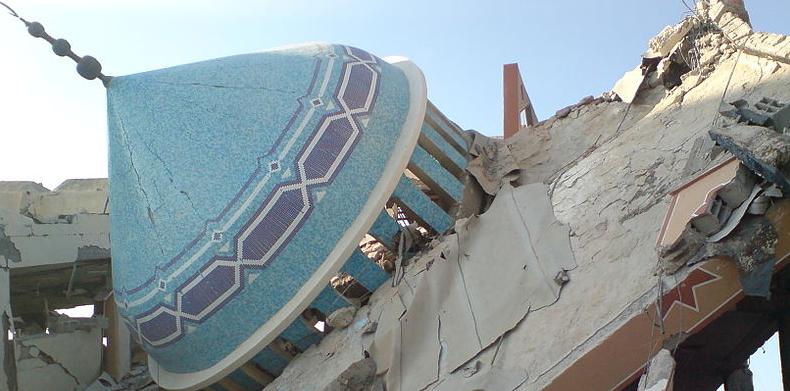
Court No 4 witnessed interesting arguments concerning the scope of India’s secularism before justices Dipak Misra and Prafulla C Pant, in the case of The State of Gujarat and others vs Islamic Relief Committee, Gujarat (IRCG) and another.
On 8 February 2012, the Gujarat high court had directed the Gujarat government to grant compensation in favour of the persons who are in charge of religious places, including those of worship, which were damaged during the communal riots of 2002.
The compensation would pay for the restoration of the sites to the condition before the riots took place and destroyed them.
If the places of worship had been repaired during the long pendency of the litigation, the high court had held that the persons in charge of those places would be entitled to reimbursement of the amount spent to restore those places.
They would have to produce evidence of expenditure incurred by them for the above purpose, as there is no waiver of fundamental rights. The high court had asked the aggrieved persons to lodge their claims before the state government.
The Gujarat Government has appealed against the order in the Supreme Court, and yesterday (26 August) arguments began in earnest in the case. The petitioner before the Gujarat high court, IRCG, an NGO, was the respondent before the Supreme Court.
The Gujarat government’s senior counsel, Tushar Mehta, began his arguments at 2 pm and completed at 3pm. He argued that the right to worship at a particular place was not a fundamental right.
Justice Dipak Misra tried to put the issue succinctly by asking counsel to answer whether the state can be mandated to compensate the loss suffered by religious structures during communal violence, and whether there could be a community endeavour to reconstruct the damaged religious structures.
Mehta argued that most of the trusts that are managing these religious structures were not registered bodies, and therefore, the government could not hold talks with them.
Second, Mehta suggested that there was no right to compel anyone to pay tax for repairing these religious structures. He said that under Article 27, no writ could be issued for use of state funds (Article 27 states that no person shall be compelled to pay any taxes, the proceeds of which are specifically appropriated in payment of expenses for the promotion or maintenance of any particular religion or religious denomination).
Article 27, Mehta argued, therefore prohibited appeasement of any religions out of state funds.
Senior counsel Yusuf Hatim Muchhala, who began his arguments at 3 p.m. on behalf of the respondent, was still on his legs when the bench rose at 4 pm.
Muchhala cited the Supreme Court’s judgment in Prafull Goradia vs Union of India to point out that the court had upheld Government’s subsidy of Haj pilgrimages.
In Prafull Goradia, the court had held that Article 27 would be violated if a substantial part of the entire income tax collected in India, or a substantial part of the entire central excise or the customs duties or sales tax, or a substantial part of any other tax collected in India, were to be utilised for promotion or maintenance of any particular religion or religious denomination.
“In other words, suppose 25 per cent of the entire income tax collected in India was utilised for promoting or maintaining any particular religion or religious denomination, that, in our opinion, would be violative of Article 27of the Constitution.”
Mehta, however, was critical of this judgment calling it per incuriam (incorrect in law). He pointed out that in Amarnath Yatra, the state spends to create and maintain facilities for the pilgrims, and not for improving the place of worship.
Muchhala argued that the meaning of secularism has been understood to include protection of the places of worship.
Both in the SR Bommai vs Union of India and Ismail Farooqui cases, the Supreme Court had held that secularism is to maintain rule of law, and protect places of worship.
Muchhala submitted that comprehensive failure of law and order amounts to acts of nonfeasance / misfeasance in Public Law, for such acts, the State Government was liable to compensate those who suffered damages.
Muchhala also revealed that the state government had specifically accepted before the National Human Rights Commission that it would restore the places of worship, which were damaged.
He further submitted that the plea of the State Government that compensation for destruction of places of worship would be violative of Article 27 was totally erroneous, because no one is compelled to pay any tax in the instant case.
Only relief is sought against the State Government to pay compensation from the public exchequer.
He further clarified that the liability of the State Government is not for the promotion of maintenance of any particular religion or religious denomination.
The cause of action is based on the principle that if the State has by its inability or for whatever reason has failed to protect the fundamental rights or human rights then it has to compensate the aggrieved person for such violation.
Arguments will continue on 27 August.